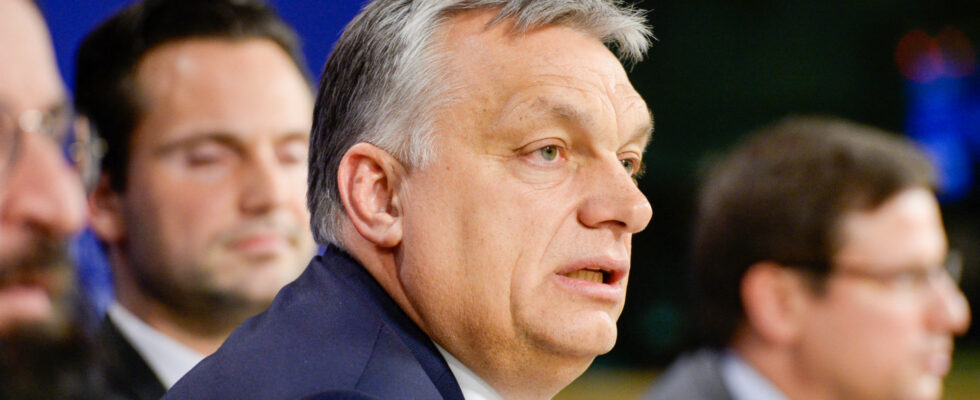Romain Rouillard / Photo credit: EUROPEAN UNION / HANS LUCAS / HANS LUCAS VIA AFP
modified to
11:51 p.m., December 15, 2023
Volodymyr Zelensky did not want to mask his joy Thursday evening when hailing a “victory for Ukraine” and even for “all of Europe”. On the first day of a summit bringing together the 27 Member States of the European Union, Charles Michel, President of the European Council, announced the opening of accession negotiations with Kiev, thus sending a strong political signal to a country still consumed by the war imposed on him by Russia. But if the message addressed to Volodymyr Zelensky is indeed hopeful, the road leading Ukraine to Europe remains strewn with obstacles.
The Orbán/Putin relationship
Because a discordant voice is being raised within the European community and it intends to be heard. That of Viktor Orbán, the Hungarian president, opposed to the integration of Ukraine into the EU. Budapest had even threatened to use its right of veto to cut short any negotiations before finally abstaining. But the position of the Central European leader on the issue has not changed one iota. “We should not overestimate the significance of the opening of these negotiations. Politically, it does not cost Viktor Orbán very much,” explains Florent Marciacq, associate researcher at the French Institute of International Relations (Ifri). The Hungarian leader is using this issue as a lever to access European funds of which his country is deprived, due to the attacks on the rule of law that Brussels accuses it of. And if the European Commission has rightly announced the release of 10 billion euros, Budapest is demanding 18 more.
Important economic considerations, but which cannot explain, in themselves, the persistence of the Hungarian blockade. “There is also Viktor Orbán’s relationship with Vladimir Putin. There is an affinity between the two which leads the Hungarian leader to block certain Western processes which would turn too much towards Ukraine”, explains Florent Marciacq. Viktor Orbán also takes advantage of a more favorable context to loudly proclaim his objection. “The tide is starting to turn. We see it in the United States, where aid to Ukraine is being called into question. But also in Europe with the far right on the rise almost everywhere. All this gives Orbán the feeling that “he has the legitimacy to position himself like that,” continues the expert.
Domestic political issues
The parliamentary elections, which will call Hungarians to the polls in 2024, also act as a catalyst for Viktor Orbán’s vehemence against the European Union, assures the researcher. “Each election in Hungary is an opportunity to place the weight of Hungary’s economic difficulties on the back of the European Union. It’s about using Europe as a scarecrow.” A necessity increased by the erosion of part of the popular support from which the leader benefits. “He needs to invigorate, to further polarize the debates to keep his position,” believes Florent Marciacq.
Viktor Orbán will once again have the opportunity to obstruct Ukraine’s accession process in the near future. Because the concrete opening of negotiations on a technical level is not expected before next March. If an agreement were to emerge, it would require a new unanimous vote by member states. Orbán could then activate his famous right of veto and thus block Ukrainian integration, just as he opposed, on the night of Thursday to Friday, the release of a support fund of 50 billion euros to destination Kiev. “We are very far from effective enlargement to Ukraine,” stressed Emmanuel Macron, calling on the Hungarian leader not to take the EU “hostage”.
